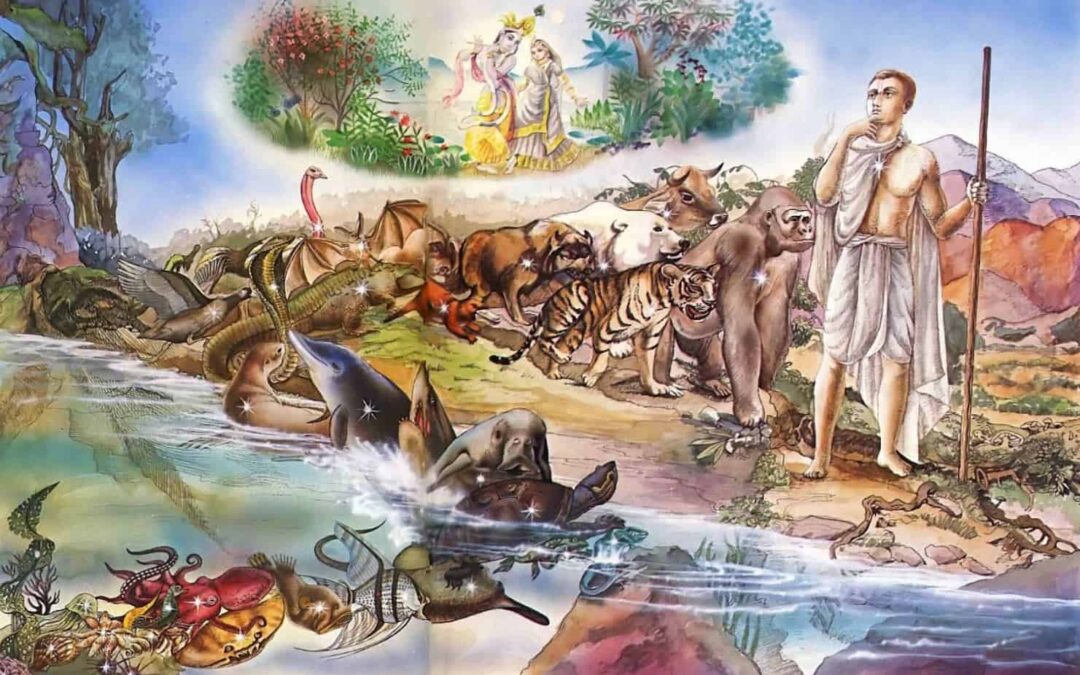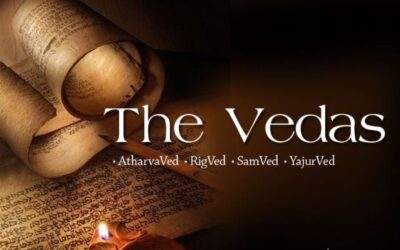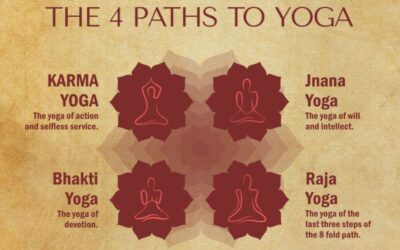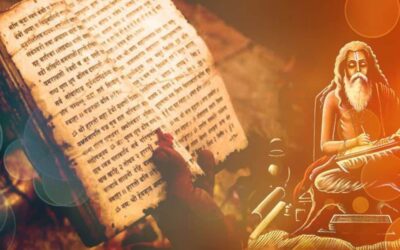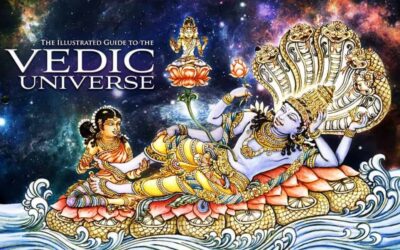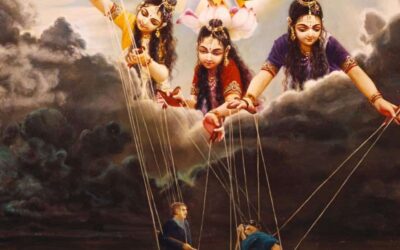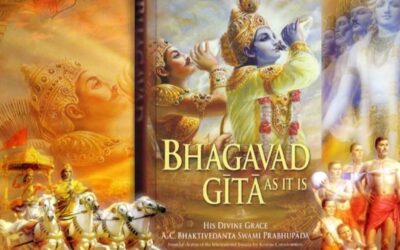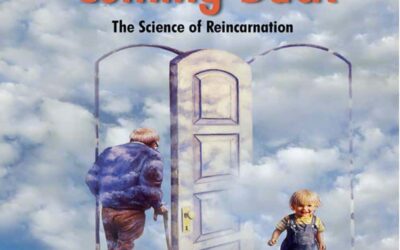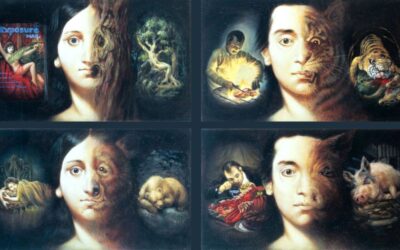The Science of Soul – Our Real Identity
- The very first step in self-realization is realizing one’s identity as a “Soul”, which is separate from the body.
- There are two classifications when it comes to exploring our real identity, the Non-Vedic philosophy, and the Vedic philosophy.
- Vedic scriptures establish our real identity as soul. Those who accept Vedas as the supreme authority and thus believe in the existence of the soul are called theists.
- Not accepting Vedas as the ultimate authority and therefore, denying the existence of soul come under Non-Vedic philosophy or atheists. For e.g. Charvak philosophy or Buddhist philosophy.
Non-Vedic Philosophy:
Charvak Philosophy:
Charvak says there is no such thing as the soul. You are this body and there is no life after death. He accepted that the body is made up of four elements – earth, water, fire, air, he did not accept ether as the other element since he was pratyakshavadi (Believer of direct perception). However, the fact is that matter doesn’t have life or consciousness, then what makes us moving or conscious. He explains that when the matter comes together in the body, consciousness got created, and when it disperses consciousness will be dispelled. Therefore, his theory was that consciousness is a product of matter. This is the basis of modern science which believes that life comes from matter and death is just a chemical reaction in the body However, what happens after death, why can’t we bring back life from the matter by reversing the chemical reaction. Why can’t we create life in the laboratory by putting all the required matters together?
Buddhist Philosophy:
Buddhism talks about Anatman (No self or soul) & voidism (Shunyavaad). Voidism means there is no such thing ultimately as the self and we merge in Void after death. We perceive the self because of a stream of thoughts. In the state of Nirvana, it will get dissolved. Buddha maintained that due to a combination of material elements, this body has come into existence and that somehow or other if these material elements are separated or dismantled, the cause of suffering is removed. At any point, consciousness cannot be denied. A body without consciousness is a dead body. As soon as consciousness is removed from the body, the mouth will not speak, the eye will not see, nor the ears hear. And this consciousness is an attribute or symptom of the eternal soul.
Vedic Philosophy:
Vedānta Philosophy:
Because we cannot perceive the soul by our gross senses, we deny it. There are many things that are there which we cannot see or perceive. We cannot see air, radio waves, or sound, nor can we perceive minute bacteria with our blunt senses, but this does not mean they are not there. With the aid of the microscope and other instruments, many things can be perceived which had previously been denied by the imperfect senses. Just because the soul, which is atomic in size, has not been perceived yet by senses or instruments, we should not conclude that it is not there. It can, however, be perceived by its symptoms and effects. The consciousness that pervades the entire body is the symptom of the soul that inhabits the body. The soul, being spiritual, cannot be perceived by material eyes or instruments. It is experimentally impossible to establish the existence of the soul, and therefore shruti, or Vedic wisdom, must be accepted as proof and evidence. The soul is there in the heart and it is spreading consciousness throughout the body. Just like smell is in the flower, but if there are flowers growing in a garden the whole garden becomes aromatic, the flowers have passed on their aroma to the whole garden. Similarly, the matter is not conscious the soul has got consciousness. So, when the soul is present in the body, it makes this entire body-conscious.
There are many logical concepts that establish the existence of a soul.
- Intuitive understanding – We all say and think “this is my hand”, “this is my hand”, “this is my teeth”, etc. We have an intuitive understanding that we are distinct from the body and the different parts of our body belong to us, the person within, that is, the soul. When someone dies, we say he is no more but the same person’s body is lying here, who was that which has gone and in absence of which it is just a body.
- Consciousness – We can understand that the soul is present within a body when the body has consciousness. Just like the sun, although physically located in one place, spreads its heat and light everywhere. Similarly, the soul spreads consciousness all over one’s body. This consciousness enables one to think, feel, observe, etc. We do not identify ourselves with any body part which is cut from our body saying that’s me.
- Past Live Memory – Over the past years, there have been various serious researchers on past-life memories. One such researcher is Dr. Ian Stevenson, the University of Virginia who has extensively investigated spontaneous reincarnation memories recounted by children. When the concept of reincarnation is established, identifying ourselves with the body is pointless as we are born again and again with different gender, name, religion, and nationality.
- Near-Death Experience – Near Death Experience (NDE) refers to a situation where a person recalls his/her experience during a moment when he/she was close to death and somehow was able to distinguish between the body and the soul.
- Out of Body Experience – In near-death experience situations, many persons have also felt out-of-body experiences (OBE) whereby they could observe themselves and everything around as if they were outside their own bodies.
In the Vedic system of belief, there are many philosophies that establish the existence of a soul in different aspects. Let’s see some prime of them.
According to the Surya Siddhant, Kali Yuga (the dark era of quarrel & hypocrisy) began in 3102 BCE almost 5000 years ago. Brahmanas who were the head of the society and responsible for preserving the dharma (righteousness), started manipulating Vedic scriptures for self-interest and benefits. They started killing animals in the name of sacrifice and also started eating by misinterpreting Vedic literature. This way entire society was getting spoiled and therefore to save dharma many schools of Philosophy came into existence.
- Shunyavaad Philosophy: First came Buddha in 550 BCE to bewilder the followers of Veda. Buddha said do not kill animals in the name of Vedic reference but Brahmans came with the Vedic scriptures as proof. Hence Buddha discarded Vedas and said worship me and stop sacrificing animals. He propounded the theory of Shunyavaad, which says there is no soul or God and we will merge into Void after death.
- Advaita Philosophy: After Buddha, in 788 CE appeared Adi Shankaracharya, who is considered the propagator of the philosophy of Mayavaad. He again established Vedas as the ultimate authority and established Advaita philosophy. He uprooted Buddhist philosophy from India and propounded Mayavaad saying that Brahman is the ultimate reality which is formless, attributeless, and impersonal, and we souls are one with the Brahma.
- Dvaita Philosophy: In 1239 CE appeared Madhvacharya who propagated Dvaita philosophy. He was a critic of Adi Shankar’s Advaita Vedanta and Ramanuja’s Vishishtadvaita Vedanta teachings. Madhvacharya expounded that there is a fundamental difference between Atma (individual self, soul) and Brahma (ultimate reality, God). Madhvacharya philosophy championed Shankar’s Advaita Vedanta, Ramanuja’s Vishishtadvaita Vedanta, and Buddha’s Shunyavaad philosophy. He established his teaching on the basis of the three types of evidence from Vedic scriptures.
- Achintya Bhedabheda Philosophy: Achintya-Bheda-Abheda is a school of Vedanta representing the philosophy of inconceivable one-ness and difference between Atma and Brahma. This is one of the key points of theistic philosophy taught by Chaitanya Mahaprabhu. As a part of God’s energy, we’re also equal in quality, however, different in quantity as a spark of the spiritual energy and the Supreme Lord is the infinite source of all energies. This summarizes all the above philosophies as one who knows God knows that the impersonal and personal concept is simultaneously present in everything and we are uniquely one and different from god at the same time.
- The existence of the souls indicates a source, from where all the souls and matter have originated which further confirms a supreme authority of God who is the cause of all causes. A barber may say that there is no God, because if there was a God then there would be no poverty, disease, and suffering. But we see that there are many long-haired and unshaven people on earth. Does this mean that there is no barber on the planet? The problem is that they don’t go to the barber. In a similar way, people don’t approach God nor do they follow His teachings and thus there is material existence with poverty, disease, and suffering.
- Similarly, A banker says there is no God, because if there were a God then there would be no tragedy and miseries in the world. But there are many people living in poverty. Does this mean there are no banks full of money? Why don’t the banks give out loans to all the poor? The banker says we can only give to those who are qualified. In a similar way, there is a God, but only those who are qualified will know Him.
- A person says I have not seen God, nobody has seen too and thus there is no God. The question arises – have you seen your great grandfather? certainly not? Does that mean your great grandfather never existed? Similarly, God is eternally present everywhere whether we have seen him or not.

